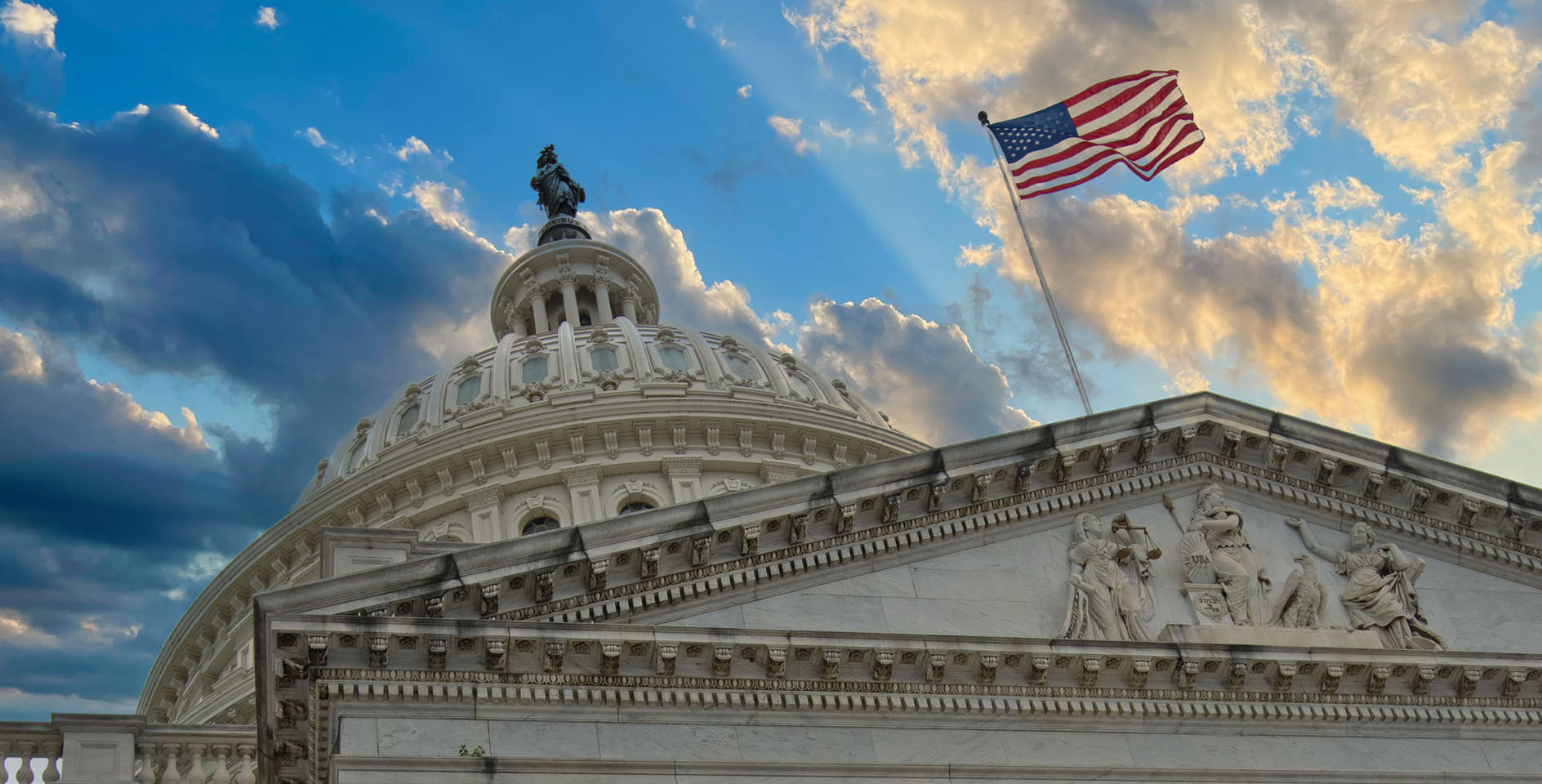“Knowing what you know, what will you do?” This is the question that Steven Garber threads through his book, Visions of Vocation: Common Grace for the Common Good, and it is a question that is begging to be asked and answered today. What we know—what is plainly obvious—is that the world of American politics has gone mad, and not only for the reasons that are most evident.
What is obvious is that the Left seems to be charging leftward ideologically with a bushel of policy positions that are increasingly irresponsible and immoral. At the same time, the Right appears equally committed to rush to its own extreme ideological end; so far right, in fact, that we’re now hearing whispers of Civil War from the Right’s extreme loyalists. As a result, Democrats and Republicans, and their adherents, are constantly yelling at each other from across the growing ideological gulf that separates them. The rhetoric is loud and mad, and growing more disrespectful, partisan, and unproductive by the day.
But the political conditions we’re witnessing today weren’t created ex nihilo. They are the fruit growing in the soil of poor and inept leadership—poor because it is alarmingly unvirtuous, and inept because it is so obviously self-interested. American politics is in crisis because American leadership is in crisis. Who among us has the courage to step in and show a better way?
A crisis of leadership
Jesus says you can tell a lot about a person and their heart by their use of words (Matt. 12:34). Are their words true, fair and reasonable, and wise? Do they use words to build up and encourage? Are they kind, honest, thoughtful, competent, measured? Words matter, and they serve as a litmus test of a person’s character and their capacity for principled leadership. And the words being thrown around by a large cross section of our political leaders today, by and large, reveal a dearth of virtue, competence, and of good, moral leadership.
We have elected a subset of leaders today—a loud and vocal, but growing minority—that majors in charisma but minors in character and integrity. They can command crowds, stir up support, and raise large sums of money, yet they do it not with good and productive ideas but by tearing down the other side and whipping their followers into a near-violent frenzy with alarmism and shock theater. We are being led by men and women who, in any other era of American politics, would have been disqualified a hundred times over by their egregious lack of character and selfish ambition, the very thing the framers of the U.S. Constitution sought to prevent when constructing our system’s balance of powers.
Our nation’s political leaders make some of the most difficult, complex decisions imaginable. We need prudent men and women with the moral capacity and proven character to make these decisions and to exercise good leadership. As it stands, though, our representative government is enduring a scarcity of principled, admirable leaders.
Christian responsibility
Knowing what we know, what will we do? At the heart of Garber’s question lies the words of the Czech playwright, Vaclav Havel: “The secret of man is the secret of his responsibility.” In stamping his own divine image upon us, God has assigned us responsibility for the world he has created and given as our dwelling place. And to know that something has gone woefully wrong in the world, as it has in American politics, is to be held responsible for its repair. Using Garber’s language, to know is “to be implicated.”
In other words, echoing the sentiment of James, it is not enough to merely know (James 2:17). Our knowing must compel our doing, and our doing, to reference Garber again, must be driven by love—love of God, love of neighbor, and love of this world, both broken and beautiful, that we are to steward. But this is a task that too often eludes us, as Garber says: “Knowing and doing are at the core of every examined life, but putting the two together is the most difficult challenge we face.” Nevertheless, if it is our responsibility—our vocation, in fact (Gen. 1:28)—to care for the world God’s given us, then to waive away the opportunity to help repair what’s gone wrong in American politics is a dereliction of our Christian duty.
A call for Christians to lead
We are living through a crisis of American leadership. Sure, there are good and faithful people all over this country, in the public and private sector, leading with great competence and integrity. But we need more of them. We need them in the school boards and city councils of our local communities, and we need them in the halls of Congress, in our courts, in the west wing, and in the oval office. So, what are we to do?
American politics, in its 21st century conception, is among the most illusory and theatrical segments of our society and, for that reason, ripe for men and women of integrity to step in and lead the body politic with truth and honor and virtue. We need public servants who are above reproach. We need leaders who are honest. We need men and women who put to death the self-interest and ambition the framers were so leery of and, out of the love and responsibility they feel toward their neighbor, commit to serve for the good of others. We need leaders, men and women alike, who will carry the wisdom and ways of God into their public office. It is time to repair the crisis of American leadership, which is at its root a crisis of character.
This world is groaning for men and women to step forward who have the capacity “to live with [our] eyes wide open to the realpolitik of this life”—with all of its disappointment and despair—”and still love what [we] know” (Garber, emphasis added). It is a world desperate for Christians who, as St. Athanasius said of Jesus, find our love “evoked” by the brokenness we see, and who view that brokenness as “cause” and “occasion” for exercising our love on behalf of our neighbors. The arena of American politics is filled with people who are determined to use their words and their energy to tear things down. Our system needs people who will commit not to tearing things down, but building beautiful things like trust and rapport and bridges across the ideological gulf between Left and Right while firm in conviction, bearing good fruit that lasts beyond an election cycle.
And there is a part to play for every Christian. For the person with no official political aspirations, change begins at home. From there, serving on local boards and commissions, getting involved in the parent teacher organization (PTO) at your children’s school, and doing your job with excellence and integrity are all examples of simple and invaluable ways to lead locally. And, of course, we need Christians in the voting booth and on the ballot, leading the way toward a different kind of politics in this country.
Do any among us have the courage to lead at a time when American leadership is in crisis? Knowing what we know, what will we do? This is a call for Christians to lead.










